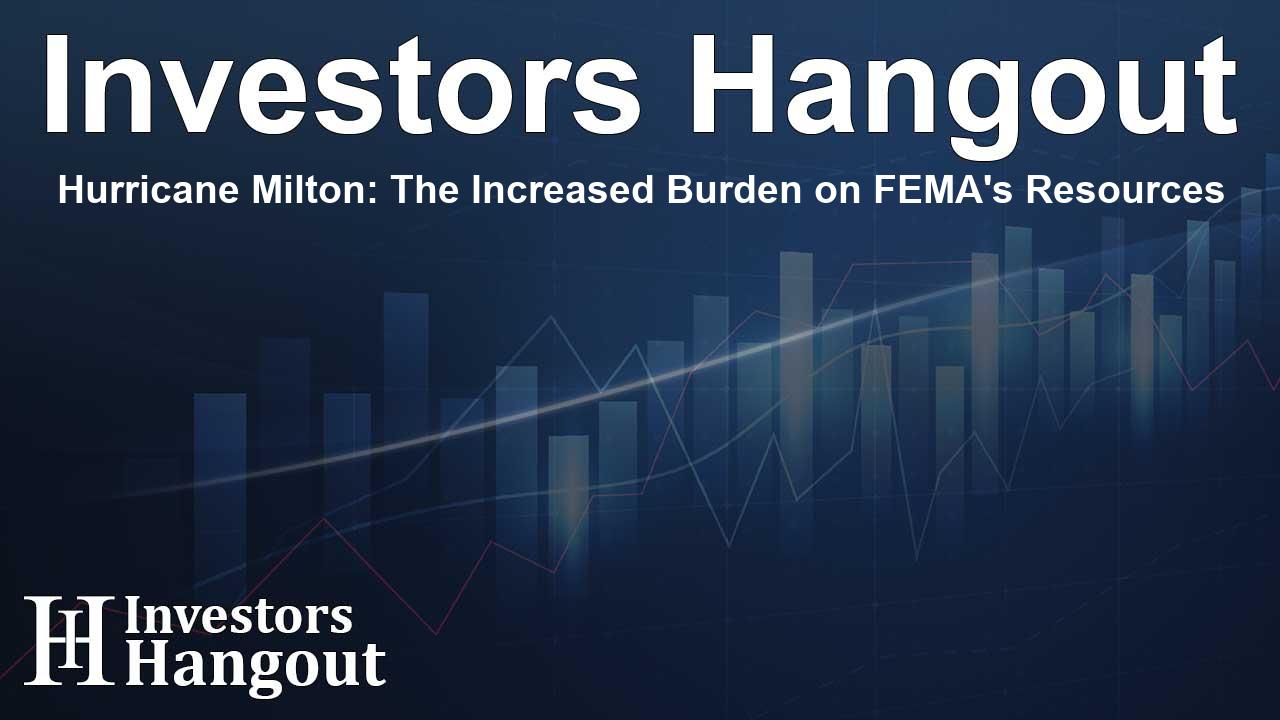Hurricane Milton: The Increased Burden on FEMA's Resources

Hurricane Milton: The Increased Burden on FEMA's Resources
As Hurricane Milton barrels toward Florida, attention focuses on the Federal Emergency Management Agency (FEMA), which is already juggling multiple disasters. With Hurricane Helene leaving Tampa Bay struggling, the situation is critical as communities prepare for yet another storm.
Understanding FEMA's Role
The Federal Emergency Management Agency exists to assist Americans before, during, and after significant disasters. From hurricanes to wildfires, its goal is clear: to minimize suffering and facilitate recovery. Unfortunately, the agency's reputation has suffered due to past inefficiencies, especially noted during Hurricane Katrina's devastating response in 2005.
FEMA's Workforce Capacity
Currently, FEMA employs around 20,000 staff members, a number that can swell to over 50,000 when major disasters occur. With ten regional offices, the agency coordinates resources effectively across various governmental levels. However, despite considerable resources, only 9% of FEMA's disaster response workforce is available during Hurricane Milton.
Challenges of Staffing and Resources
FEMA Administrator Deanne Criswell reassured the public that the agency is prepared to meet the needs of those in Milton's path. The agency can reassign personnel to manage immediate assignments more effectively. Furthermore, FEMA can utilize the Department of Homeland Security's surge capacity, accessing additional staff from within its edges in times of urgent need.
Funding Woes
A critical issue facing FEMA is funding. As the hurricane season stretches through November, the agency confronts potential financial shortfalls. Secretary of Homeland Security Alejandro Mayorkas has expressed concerns that the funds allocated may not last. As various senators advocate for more financial support, the situation remains tense as the political climate complicates timely aid.
Disinformation Complicating the Situation
Alongside natural disasters, FEMA currently battles a wave of misinformation affecting public perception. This campaign includes allegations that federal funds are mishandled, primarily fueled by partisan narratives. Some claims suggest that funds meant for disaster relief are instead diverted for unrelated governmental agendas.
Setting the Record Straight
To combat false rumors, FEMA has created a response mechanism on its website dedicated to misinformation. It firmly addresses claims regarding diversion of funds, clarifying that all disaster-response funding is solely earmarked for recovery efforts and is handled through specific dedicated funds.
Learning from Past Mistakes
The history of FEMA is riddled with instances where the agency has fallen short in disaster response. One notable example is Hurricane Maria's aftermath in Puerto Rico, where residents felt abandoned during a critical time. Similarly, the chaotic scenes in New Orleans during Hurricane Katrina were pivotal in shaping public perception of the agency’s capabilities.
As we navigate this hurricane season, the effectiveness of FEMA will once again be scrutinized. The outcome of Hurricane Milton could define how the agency strengthens its operations for future emergencies and how it manages the social narratives linked to its performance.
Frequently Asked Questions
What is the main function of FEMA?
FEMA's main function is to provide assistance before, during, and after natural disasters, aiming to help communities recover sustainably.
How can FEMA increase its workforce during emergencies?
FEMA can increase its workforce by reassigning staff from recovery operations and utilizing surge capacity from other departments within the DHS.
What challenges is FEMA currently facing?
FEMA is facing challenges regarding resource availability and funding levels as it manages multiple disaster responses during the current hurricane season.
How does misinformation impact FEMA's operations?
Misinformation complicates FEMA's efforts by creating public distrust, often making it harder to manage effective communication and coordinate disaster responses.
What lessons has FEMA learned from past disasters?
FEMA has learned the importance of timely and efficient response, along with the critical need for effective communication in the wake of disasters to rebuild public trust.
About Investors Hangout
Investors Hangout is a leading online stock forum for financial discussion and learning, offering a wide range of free tools and resources. It draws in traders of all levels, who exchange market knowledge, investigate trading tactics, and keep an eye on industry developments in real time. Featuring financial articles, stock message boards, quotes, charts, company profiles, and live news updates. Through cooperative learning and a wealth of informational resources, it helps users from novices creating their first portfolios to experts honing their techniques. Join Investors Hangout today: https://investorshangout.com/
Disclaimer: The content of this article is solely for general informational purposes only; it does not represent legal, financial, or investment advice. Investors Hangout does not offer financial advice; the author is not a licensed financial advisor. Consult a qualified advisor before making any financial or investment decisions based on this article. The author's interpretation of publicly available data shapes the opinions presented here; as a result, they should not be taken as advice to purchase, sell, or hold any securities mentioned or any other investments. The author does not guarantee the accuracy, completeness, or timeliness of any material, providing it "as is." Information and market conditions may change; past performance is not indicative of future outcomes. If any of the material offered here is inaccurate, please contact us for corrections.